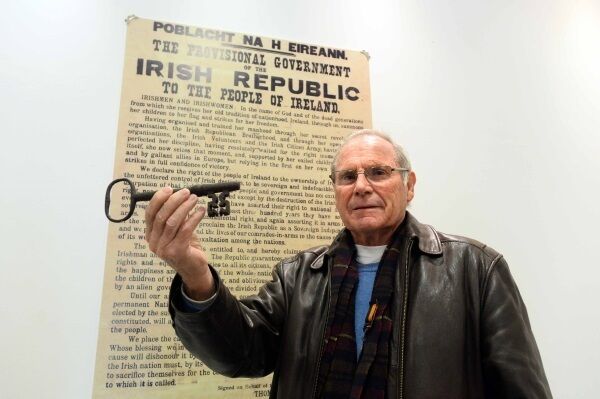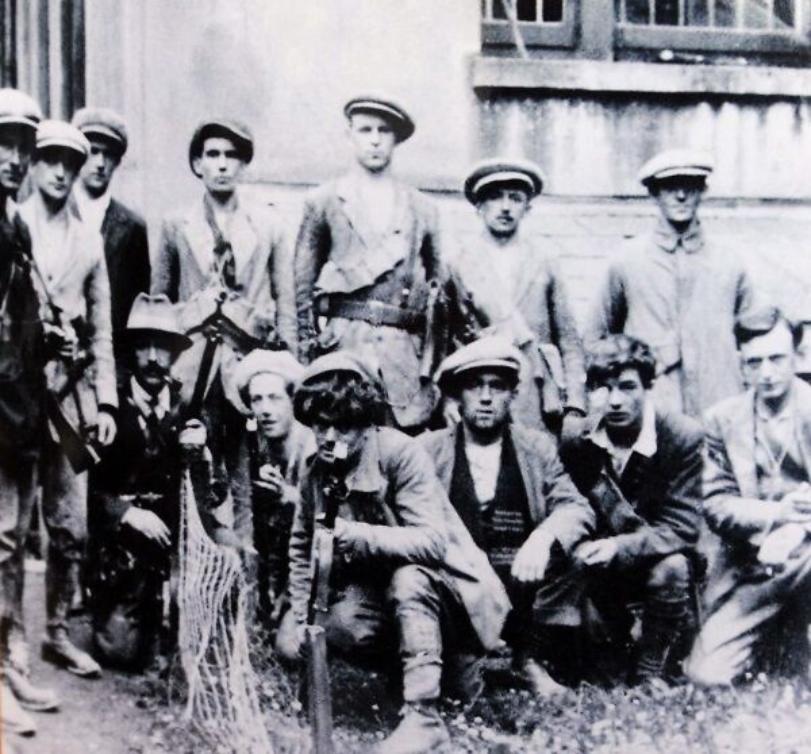In This Section
- Home
- Collections
- Atlas Resources for Schools
- Cork Fatality Register
- Mapping the Irish Revolution
- Mapping IRA Companies, July 1921-July 1922
- Mapping the Burning of Cork, 11-12 December 1920
- Martial Law, December 1920
- The IRA at War
- The Railway Workers’ Munitions Strike of 1920
- The Victory of Sinn Féin: The 1920 Local Elections
- The War of Words: Propaganda and Moral Force
- The IRA Offensive against the RIC, 1920
- De Valera’s American Tour, 1919-1920
- The British Reprisal Strategy and its Impact
- Cumann na mBan and the War of Independence
- The War Escalates, November 1920
- The War of Independence in Cork and Kerry
- The Story of 1916
- A 1916 Diary
- January 9-15 1916
- January 10-16, 1916
- January 17-23, 1916
- January 24-30, 1916
- February 1-6 1916
- February 7-14, 1916
- February 15-21, 1916
- February 22-27, 1916
- February 28-March 3, 1916
- March 6-13,1916
- March 14-20, 1916
- March 21-27 1916
- April 3-9, 1916
- April 10-16, 1916
- April 17-21,1916
- May 22-28 1916
- May 29-June 4 1916
- June 12-18 1916
- June 19-25 1916
- June 26-July 2 1916
- July 3-9 1916
- July 11-16 1916
- July 17-22 1916
- July 24-30 1916
- July 31- August 7,1916
- August 7-13 1916
- August 15-21 1916
- August 22-29 1916
- August 29-September 5 1916
- September 5-11, 1916
- September 12-18, 1916
- September 19-25, 1916
- September 26-October 2, 1916
- October 3-9, 1916
- October 10-16, 1916
- October 17-23, 1916
- October 24-31, 1916
- November 1-16, 1916
- November 7-13, 1916
- November 14-20, 1916
- November 21-27-1916
- November 28-December 4, 1916
- December 5-11, 1916
- December 12-19, 1916
- December 19-25, 1916
- December 26-January 3, 1916
- Cork's Historic Newspapers
- Feature Articles
- News and Events
- UCC's Civil War Centenary Programme
- Irish Civil War National Conference 15-18 June 2022
- Irish Civil War Fatalities Project
- Research Findings
- Explore the Fatalities Map
- Civil War Fatalities in Dublin
- Civil War Fatalities in Limerick
- Civil War Fatalities in Kerry
- Civil War Fatalities in Clare
- Civil War Fatalities in Cork
- Civil War Fatalities in the Northern Ireland
- Civil War Fatalities in Sligo
- Civil War Fatalities in Donegal
- Civil War Fatalities in Wexford
- Civil War Fatalities in Mayo
- Civil War Fatalities in Tipperary
- Military Archives National Army Fatalities Roll, 1922 – 1923
- Fatalities Index
- About the Project (home)
- The Irish Revolution (Main site)
Key to go on Display in Cork's Collins Barracks

A key to an important incident in Cork’s revolutionary history has been returned to the city — 98 years after its role in a daring jailbreak.
By Niall Murray, Irish Examiner
On the day that the guns fell silent in Europe at the end of the First World War, the rescue of Denis McNeilus from one of the British empire’s securest jails showed that Cork’s revolutionaries were willing and able to take physical force action.
The Donegal-born officer of the local Irish Volunteers brigade was sprung from Cork County Gaol before he could face trial for the attempted murder of a policeman.
The family of one of the rescue participants recently presented a key believed to have been taken in the rescue to the military museum at Cork’s Collins Barracks.
Paddy Varian was one of the team of Irish Volunteers on duty outside the prison, which was demolished in the 1950s but whose high walls still form part of the perimeter of University College Cork. The 18-year-old’s role was to climb a telegraph pole and cut the wires to disable communication to the police or military on the afternoon of November 11, 1918.
His daughter Betty recalls regularly asking her father to recount the story about the rescue.
“He told us he was the one up the telegraph pole in the gaol, because they didn’t want them sending out any messages,” said Betty.
“This man stopped and said to him: ‘What are you doing up there?’ He said: ‘If you don’t run, I’ll kill you.’ ”
As pointed out by Irish Army Company Quartermaster Sergeant Gerry White, a military historian based at Collins Barracks in Cork, the Varian family were prominent in Cork city’s War of Independence story.
Paddy and his older brother Harry were members of the Irish Republican Brotherhood, the secret society which favoured physical force to secure Ireland’s freedom, and which was behind the plot for the Easter Rising in 1916.
Paddy was one of four Volunteers injured, along with a Cumann na mBan member, in an explosion that killed an Irish Volunteers officer at a makeshift bomb factory in the city’s Grattan St in April 1919.
The brothers were also involved in the attempt to blow up a Boer War memorial at Donovan’s Rd the same year.

Harry and Paddy Varian in the back row and to the right in a picture of volunteers in Cork, mainly from A Company from 1916-1918.
Jim Fahy, an officer of the Cork Masons Historical Society, was involved in arranging the donation of the items to the Cork Public Museum. Both Paddy and Harry Varian were masons, like their father William.
The key secreted out of Cork County Gaol was kept in Massachusetts for many years by one of Betty’s brothers, Patrick. He formally handed over the key and his father’s 1917-1921 Service Medal to the Collins Barracks museum on behalf of the family during a recent trip to Cork.
“We grew up hearing all the stories, we used to think it was like stuff from a John Wayne movie,” said Patrick.
Another artefact of the escape is the set of handcuffs taken off Denis McNeilus, which also ended up with the Varian family. They handed them back to his sons Seán and Donnchadh in Cork nine years ago.
“We were delighted to receive them from the Varians, and they now hold pride of place up here,” Donnchadh Mac Niallais from Gweedore, Co Donegal, grandson of the escaped volunteer, said.
This article was first pubilshed in the Irish Examiner on 28 November 2016
